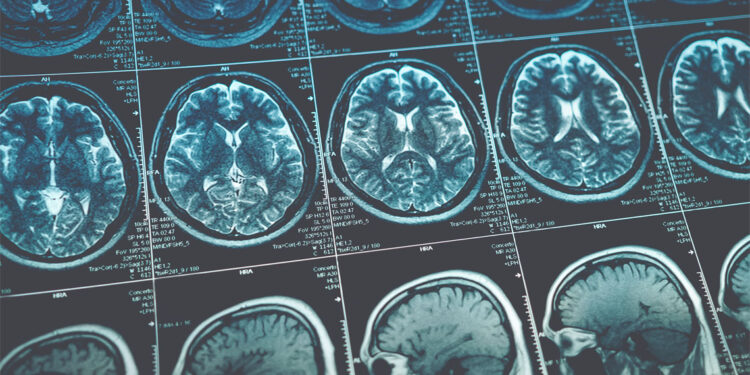A new neuroimaging study exploring brain activity of women who are frequently (consensually) choked or strangled during sex found that these women tend to show increased connectivity between the angular gyrus region of the brain and regions related to motor control, consciousness, and emotion. The study was published in the Journal of Neurotrauma.
Being choked or strangled during sex is a new form of sexual behavior that seems to be spreading among young women. It is a form of strangulation in which a partner applies external pressure to the neck using their hands, limbs, or a ligature. In a recent survey of around 5,000 college students, 58% of women reported that they have been choked/strangled during sex at least once and 33% reported being choked at least 5 times in the past.
Although choking during sex is mainly consensual, perspectives on this differ. In another study, some women reported that being choked during sex enhances their sexual arousal, making sex more pleasurable, while others reported that they consent to it primarily in order to please their partner.
However, other studies have indicated that sexual choking might have more profound and adverse effects on one’s health. Researchers have reported that women who had been choked during sex more than 5 times were twice as likely to report experiencing depression, anxiety, sadness and loneliness compared to women without such experiences.
This inspired study author Jiancheng Hou and his colleagues to conduct a neuroimaging study looking for specificities of neural functioning of women who have experienced sexual choking.
Participants were 20 female college students who reported being choked 4 or more times during consensual sex with a partner in the past 30 days and 21 female college students who did not experience choking during sex. Participant were required to not be pregnant at the time of the study and to not have suffered any moderate or severe brain injury in their lifetime nor a mild brain injury in the past year.
Participants underwent functional magnetic resonance imaging and completed assessments of depression (the Patient Health Questionnaire), anxiety-related symptoms (the Generalized Anxiety Disorder Assessment), and of alcohol consumption, drinking behavior and alcohol related problems (the Alcohol Use Disorders Identification Test).
Participants in the sexual choking group reported being choked on average 10 times in the previous 10 days and 46 times in the previous year. The group that never experienced choking was substantially older than the group experiencing choking and had higher average scores on the alcohol use assessment.
When brain activity was explored, the choking group had lower homogeneity in brain activity in the left hemisphere compared to the other group, but higher in the right hemisphere. The choking group had a lower level of fluctuations of brain activity (ALFF) in the left inferior orbitofrontal gyrus, left Rolandic operculum, and right middle cingulum and higher ALFF in the right olfactory gyrus region of the brain.
Additionally, the choking group showed higher connectivity between the left angular gyrus and bilateral postcentral gyrus, left Rolandic operculum, and right superior frontal gyrus; and between the right angular gyrus and the left angular gyrus, postcentral gyrus, and insula, as well as the right Rolandic operculum, lingual, and superior temporal gyrus regions of the brain.
“The current study presents a potential interaction between repetitive sexual choking and neurophysiological alterations. There were 2 major findings,” the researchers wrote.
“First, we noted significant differences in neural activation patterns between groups, in which the choking group exhibited significantly lower amplitude of low-frequency fluctuations and regional homogeneity in the left hemisphere (e.g., Rolandic operculum, angular gyrus) and higher amplitude of low-frequency fluctuations and regional homogeneity in the right hemispheres (e.g., pre/postcentral gyri) compared with the choking-naïve group. Second, relative to the choking-naïve group, the choking group showed hyperconnectivity between the angular gyrus and widespread brain regions.”
The study sheds light on the neurological correlates of sexual choking behavior. However, it should be taken into account that the study design does not allow for any cause-and-effect conclusions to be drawn. It remains unknown whether the reported differences in brain functioning are a result of sexual choking, a cause of sexual choking behavior, or if there is some more complex relationship between the sexual choking behavior and these specificities of brain functioning.
The study, “Association of frequent sexual choking/strangulation with neurophysiological responses: a pilot resting-state fMRI study” was authored by Jiancheng Hou, Megan E. Huibregtse, Isabella L. Alexander, Lillian M. Klemsz, Tsung-Chieh Fu, J. Dennis Fortenberry, Debby Herbenick, and Keisuke Kawata.





Discussion about this post